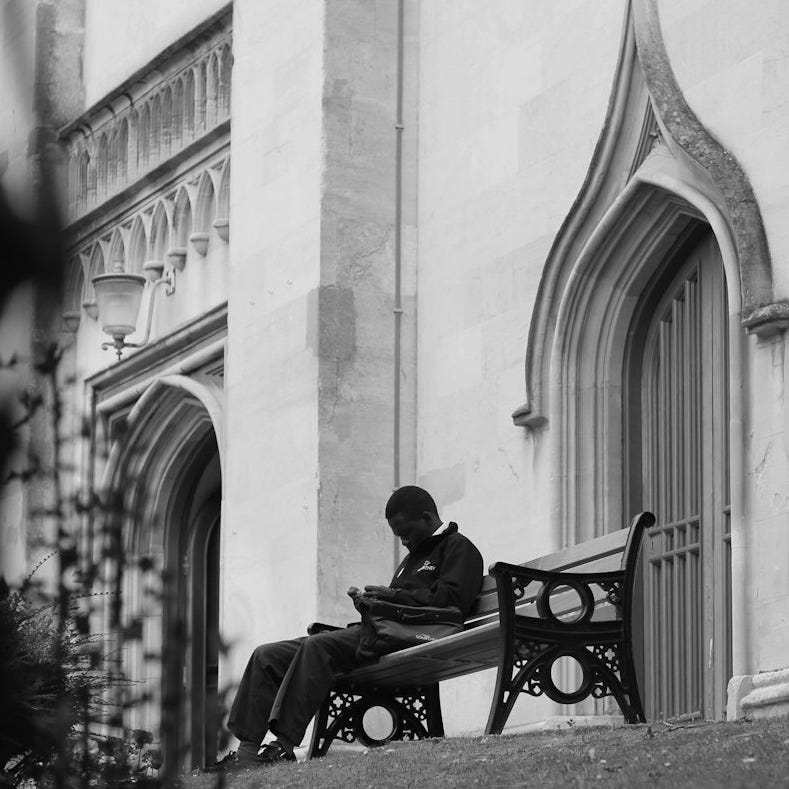The Peril of Independent Christianity Part 1
Reflection on 2 Peter 2:2; Ephesians 4:14

Speaking of false teachers, in 2 Peter 2:2 the apostle warns that “many will follow their sensuality, and because of them the way of truth will be blasphemed.” Paul offers a parallel caution in Ephesians 4:14, urging us not to be “tossed to and fro by the waves and carried about by every wind of doctrine.” Both passages remind us that detaching ourselves from the Word of God and the spiritual safeguards He has placed in the church leaves us dangerously exposed—adrift in a sea of appealing, yet potentially deceptive voices.
Many today are rejecting the church in favor of walking as “independent believers”—unconstrained by church traditions, moral codes, or even historic doctrine. I hear it often in subtle refrains: “I don’t need organized religion; I have my own relationship with God.” Or “The institutional church is too broken, uncaring, or inauthentic to speak into my life.”
But here lies a grave danger: being “tossed to and fro by every wind of doctrine” (Eph. 4:14).
Our thoughts, affections, and beliefs will inevitably be shaped by whatever voices we give authority to. If we turn away from the centrality of the Word of God and the God-ordained oversight of pastors and elders, we will find ourselves shaped instead by unvetted cultural voices: the self-appointed sage podcaster who scratches our itching ears, the secular writers who are little more than modern-day Gnostics, or by the endless soundboards of so-called “enlightened thought” on social media. Many of these voices parade themselves as offering a better gospel—as though they somehow possess wisdom greater than that of the apostles and church fathers.
It’s the age-old delusion described in Proverbs 21:2: “Every way of a man is right in his own eyes, but the Lord weighs the heart.” Left to ourselves, we’ll convince ourselves we are wise while drifting further from the truth.
The result? Minds and hearts easily led astray.
We see this spirit alive today in false teachers, a cadre of influences who exploit their platforms for viral fame and fortune. But we also hear it echoing in the culture’s favorite refrain:
“Live your truth. You do you. No one can tell you what’s right or wrong. Don’t judge me!”
What does Peter mean by “sensuality”?
The Greek word here is ἀσέλγεια (aselgeia), and it paints a vivid picture—one that’s not easy to fully capture in English. It refers not just to sexual desire (though that is often part of it), but to a wholesale lifestyle of unrestrained self-indulgence and rebellion. It’s a word that embodies arrogance toward God’s moral authority—a shameless pursuit of pleasure, power, and personal gain.
Aselgeia is a refusal to be constrained by God’s Word, by the Spirit’s conviction, or by the boundaries of a holy community. It describes those who live as their own authority, governed by personal desires and human appetites rather than submission to Christ.
Peter does not downplay the seriousness of such rebellion. He calls these false teachers “waterless springs and mists driven by a storm. For them the gloom of utter darkness has been reserved” (2 Peter 2:17). This is not merely poor theology; it is a life and teaching so corrosive to God’s people that it invites His ultimate judgment.
A Return to Biblical Submission
This is why God’s design for the church matters. The church—messy and imperfect as it is—is God’s chosen means of protecting, maturing, and equipping His people (Eph. 4:12-13). To reject her is not simply to reject human tradition; it is to reject the God who appointed overseers to “shepherd the flock of God” (1 Pet. 5:2).
If you are looking for a perfect church, you will not find it. The church is not a building or an organization—it is a fellowship of sinners saved by grace, being sanctified by God and one another. Sin should never be excused or ignored, but Scripture offers wisdom for forgiveness, reconciliation, repentance, and resolving conflict. If you have been hurt in a church or by fellow believers, know this: God sees. He calls His people to holiness, and He will hold leaders accountable. But don’t let past wounds drive you into isolation. If you are in a spiritually unhealthy church, keep looking until you find one that is living out Gospel community with the proper balance of love, grace, and truth.
If we isolate ourselves from the body, we leave ourselves vulnerable—spiritually malnourished and susceptible to deception.
The way forward is not independence but intentional submission:
· To the Word of God as our supreme authority.
· To the Spirit of God who leads us into all truth.
· And to the people of God— “submitting to one another out of reverence for Christ” (Ep 5:21), especially the faithful pastors and elders who are called to watch over our souls (Heb. 13:17).
Perhaps it’s time for some of us to step back and ask:
Am I resisting submission because I’ve been hurt by imperfect shepherds or fellow believers—or because I prefer a version of Christianity that allows me to pursue God on my own terms?
Nowhere in Scripture do we see examples of believers intentionally living out their faith in isolation, doubt, or disillusionment. The Church—the bride of Christ—is God’s gift to His people, a covenant community called to display His love and faithfulness in the world. To separate ourselves from her is to step outside the very means God has given for our growth, protection, and joy.
The difference between surrender and autonomy is eternally significant.
The Peril of Independent Christianity Part 2


